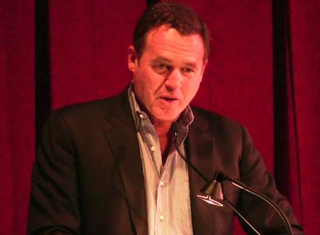A Quote by Laurence Shames
When it became clear that Lennon was not going to speak with me, it really became a how-I-didn't-get-the-story story. It was a caper.
Related Quotes
Everything necessary to understand my grandfather lies between two stories: the story of the tiger’s wife, and the story of the deathless man. These stories run like secret rivers through all the other stories of his life – of my grandfather’s days in the army; his great love for my grandmother; the years he spent as a surgeon and a tyrant of the University. One, which I learned after his death, is the story of how my grandfather became a man; the other, which he told to me, is of how he became a child again.
What drew me to Batman in the first place was Bruce Wayne's story, and that he's a real character whose story begins in childhood. He's not a fully formed character like James Bond, so what we're doing is following the journey of this guy from a child who goes through this horrible experience of becoming this extraordinary character. That, for me, became a three-part story. And obviously the third part becomes the ending of the guy's story.
I went and looked at one of these great cathedrals one day, and I was blown away by it. From there I became interested in how cathedrals were built, and from there I became interested in the society that built the medieval cathedral. It occurred to me at some point that the story of the building of a cathedral could be a great popular novel.
That's how I became the damaged party boy who wandered through the wreckage, blood streaming from his nose, asking questions that never required answers. That's how I became the boy who never understood how anything worked. That's how I became the boy who wouldn't save a friend. That's how I became the boy who couldn't love the girl.
If you have a lawyer, sometimes you can get out of trouble. I've gotten into a lot of trouble because I didn't have a lawyer. I've also had some bad lawyers, too. But the good ones, the ones I liked, they became me. They became whatever situation I was involved in. When I felt pain, so did they. When I succeeded, so did they. They became me. They became whatever the situation was that they became involved with.
If one loves stories, then one would naturally love the story of the story. Or the story behind the story, pick your preposition. It does seem to me to be a kind of animal impulse almost, a mammalian curiosity. For a reader to wonder about the autobiography in a fiction may be completely unavoidable and in fact may speak to the success of a particular narrative, though it may also speak to its failure.
This rose became a bandanna, which became a house, which became infused with all passion, which became a hideaway, which became yes I would like to have dinner, which became hands, which became lands, shores, beaches, natives on the stones, staring and wild beasts in the trees, chasing the hats of lost hunters, and all this deserves a tone.

































